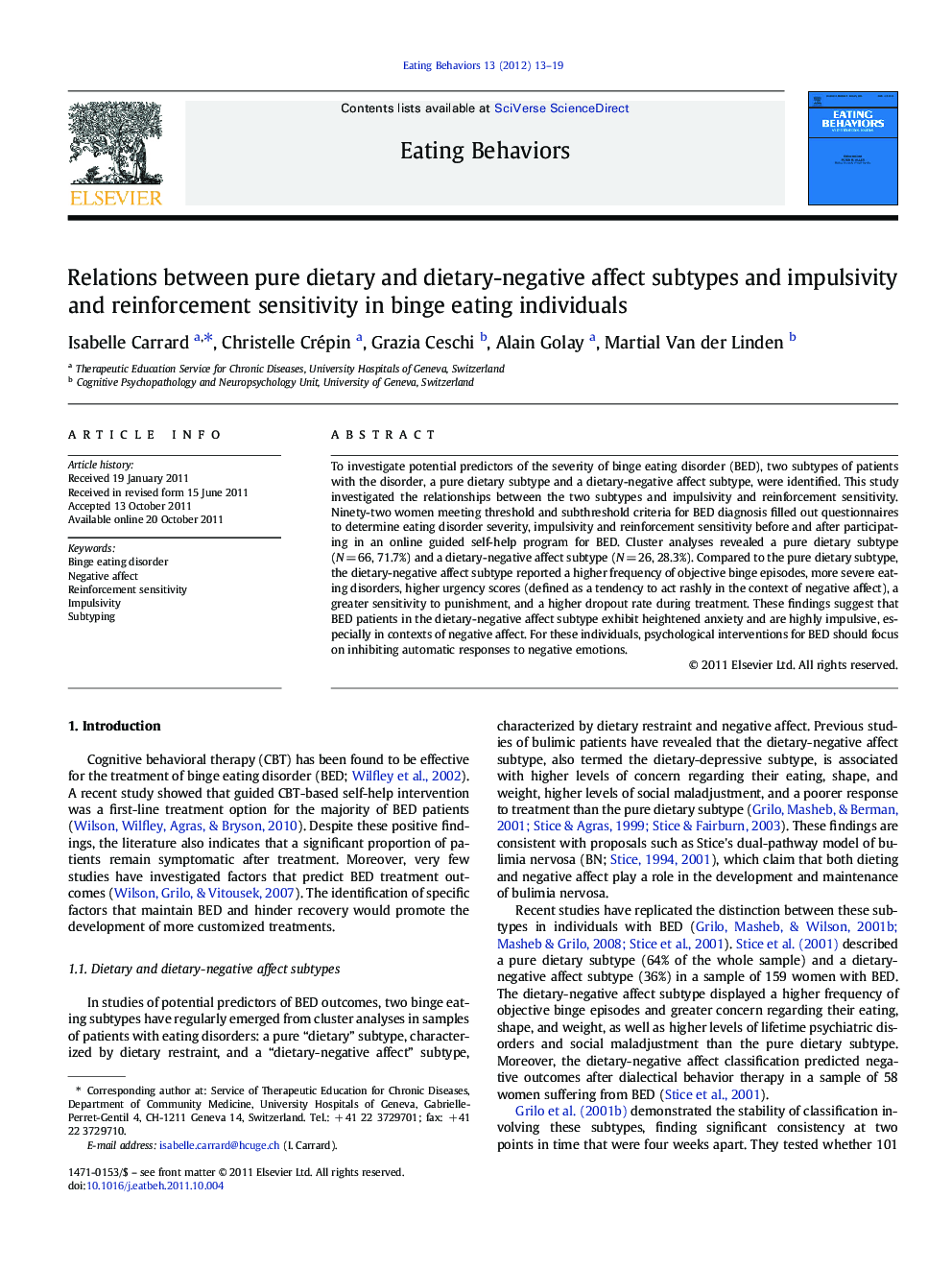| Article ID | Journal | Published Year | Pages | File Type |
|---|---|---|---|---|
| 906510 | Eating Behaviors | 2012 | 7 Pages |
To investigate potential predictors of the severity of binge eating disorder (BED), two subtypes of patients with the disorder, a pure dietary subtype and a dietary-negative affect subtype, were identified. This study investigated the relationships between the two subtypes and impulsivity and reinforcement sensitivity. Ninety-two women meeting threshold and subthreshold criteria for BED diagnosis filled out questionnaires to determine eating disorder severity, impulsivity and reinforcement sensitivity before and after participating in an online guided self-help program for BED. Cluster analyses revealed a pure dietary subtype (N = 66, 71.7%) and a dietary-negative affect subtype (N = 26, 28.3%). Compared to the pure dietary subtype, the dietary-negative affect subtype reported a higher frequency of objective binge episodes, more severe eating disorders, higher urgency scores (defined as a tendency to act rashly in the context of negative affect), a greater sensitivity to punishment, and a higher dropout rate during treatment. These findings suggest that BED patients in the dietary-negative affect subtype exhibit heightened anxiety and are highly impulsive, especially in contexts of negative affect. For these individuals, psychological interventions for BED should focus on inhibiting automatic responses to negative emotions.
► Two subtypes, a dietary and a dietary-negative affect, have emerged in BED patients. ► Presence of negative affect is correlated with greater eating disorder severity. ► Individuals with more severe binge eating display more anxiety and more impulsivity. ► Interventions targeting inhibition of automatic responses are recommended.
